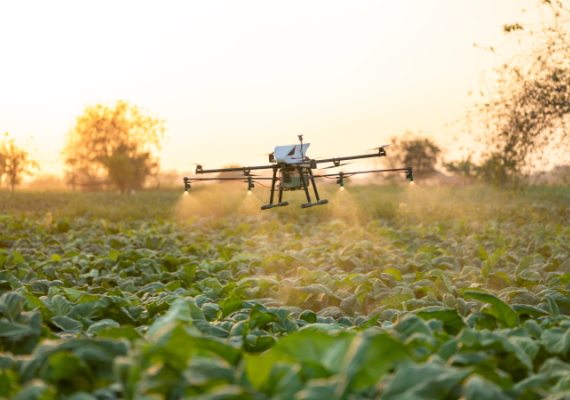
Protecting Your Agribusiness with Proactive Loss Control
Proactive loss control is an effective approach to helping agribusinesses reduce risk, improve product quality, increase production, and boost employee morale and retention. Loss control requires top-down commitment, from management to safety directors to employees. To be successful, there needs to be a culture of safety, accountability throughout the business, and continuous improvement.
An audit is an important first step in loss control. During a loss control audit, exposures are thoroughly identified, including unguarded equipment and machinery, trip and fall hazards and safe working practices. The environment and the business’s approach in dealing with losses are also documented as part of the analysis for actual and potential exposures.
After careful review of the audit findings, a plan of action is created to address and correct any problems. Consideration is given to the problem type and cause, frequency and severity, as well as the cost-benefit and urgency of implementing corrective action.
It’s also necessary to review the various risk financing and risk control options available. Stopping or limiting losses can be done using one or a combination of techniques, including risk avoidance, loss control, loss reduction, diversification of losses, and risk transfer.
Choosing the best technique requires a critical evaluation of the short- and long-term impacts of each. A cost-benefit analysis must be conducted in the short term, while capital budgeting requirements must be evaluated for long term applications.
All findings and recommendations are shared with the management team for decision-making and implementation through proper planning, preparation, education, and training.
The loss control process is never done – it requires continuous improvement. Regular and ongoing follow-ups help monitor and evaluate results, allowing agribusinesses to adapt to changes or problems and correct or improve performance.
An effective loss control program includes establishing an effective policy, assignment of responsibilities, ongoing review of claims data, periodic loss control audits and inspections, accident reporting and investigation, communication, and development and regular review of emergency and contingency plans.
Agribusiness is particularly complex, requiring a strong understanding of the risks involved and the best ways to mitigate those risks. Contact a member of our agribusiness team to learn how an effective loss control program that controls the loss frequency and severity can help determine policy limits, deductibles, and policy rate structure.

Related articles

Lorem ipsum dolor sit amet, consectetur adipiscing elit. Nullam elit quam, imperdiet sed ex quis, tempor luctus quam. Class aptent taciti sociosqu ad litora torquent per conubia nostra, per inceptos...

Do you own an unmanned aircraft system (UAS) / drone? Do you want to insure your drone? Until about a year ago, these were the only questions an insurance agent needed to ask regarding the use of...
